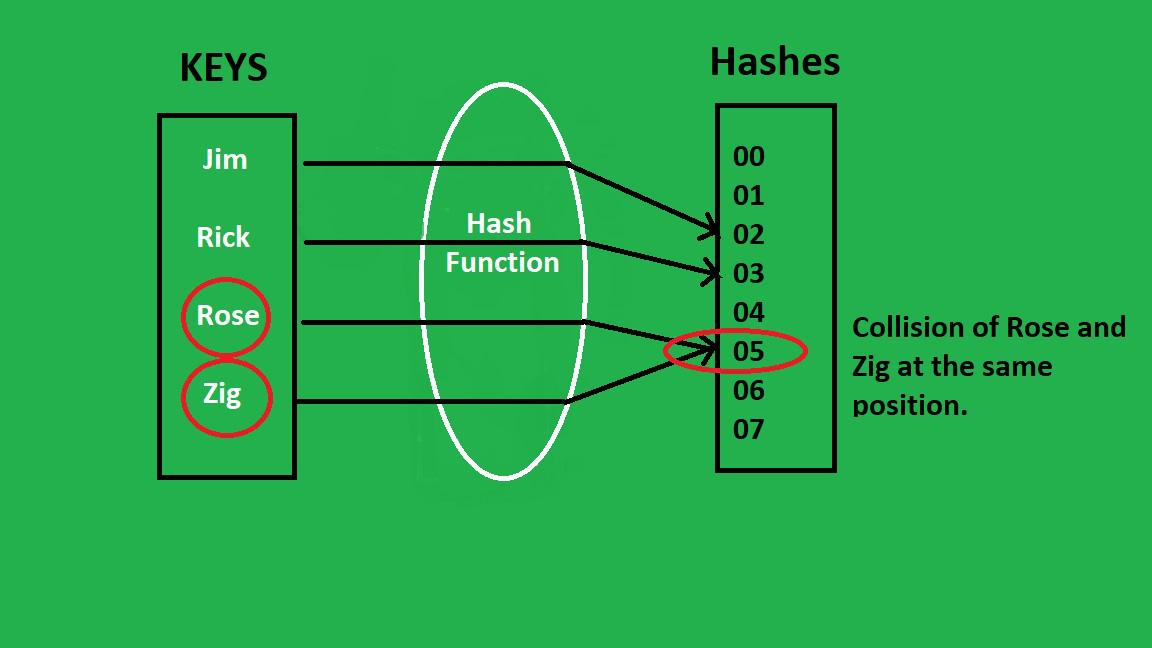Como todos sabemos, la enumeración define el tipo de clase de Java, por lo que las enumeraciones pueden tener constructores, métodos y variables de instancia. El método java.util.Hashtable.keys() de la clase Hashtable en Java se utiliza para obtener la enumeración de las claves presentes en la tabla hash.
Ilustración:

Sintaxis:
public Enumeration<K> keys() Enumeration enu = Hash_table.keys();
Valor de retorno: una enumeración de las claves de Hashtable.
Ejemplo 1:
Java
// Java Program to Illustrate keys() method
// of Hashtable class
// Importing utility classes
import java.util.*;
// Main class
public class GFG {
// Main driver method
public static void main(String[] args)
{
// Creating an empty Hashtable
// Declaring object of integer and string type
Hashtable<Integer, String> hash_table
= new Hashtable<Integer, String>();
// Inserting elements into the table
// using put() method
// Custom input elements
hash_table.put(10, "Geeks");
hash_table.put(15, "4");
hash_table.put(20, "Geeks");
hash_table.put(25, "Welcomes");
hash_table.put(30, "You");
// Print and display all entered elements in object
System.out.println("The Table is: " + hash_table);
// Creating an empty enumeration to store
Enumeration enu = hash_table.keys();
// Display message
System.out.println("The enumeration of keys are:");
// Condition holds true till there is single element
// remaining using hasMoreElements() method
while (enu.hasMoreElements()) {
// Displaying the Enumeration
System.out.println(enu.nextElement());
}
}
}
Producción:
The Table is: {10=Geeks, 20=Geeks, 30=You, 15=4, 25=Welcomes}
The enumeration of keys are:
10
20
30
15
25
Ejemplo 2:
Java
// Java Program to illustrate keys() method
// of Hashtable class
// Importing utility classes
import java.util.*;
// Main class
public class GFG {
// Main driver method
public static void main(String[] args)
{
// Creating an empty Hashtable
// Declaring object of string and integer type
Hashtable<String, Integer> hash_table
= new Hashtable<String, Integer>();
// Inserting elements into the table
// using put() method
hash_table.put("Geeks", 10);
hash_table.put("4", 15);
hash_table.put("Geeks", 20);
hash_table.put("Welcomes", 25);
hash_table.put("You", 30);
// Displaying the Hashtable
System.out.println("The Table is: " + hash_table);
// Creating an empty enumeration to store
Enumeration enu = hash_table.keys();
// Display message
System.out.println("The enumeration of keys are:");
// Condition holds true till there is single element
// remaining via hasMoreElements() method
while (enu.hasMoreElements()) {
// Displaying the enumeration
System.out.println(enu.nextElement());
}
}
}
Producción:
The Table is: {You=30, Welcomes=25, 4=15, Geeks=20}
The enumeration of keys are:
You
Welcomes
4
Geeks
Publicación traducida automáticamente
Artículo escrito por Chinmoy Lenka y traducido por Barcelona Geeks. The original can be accessed here. Licence: CCBY-SA